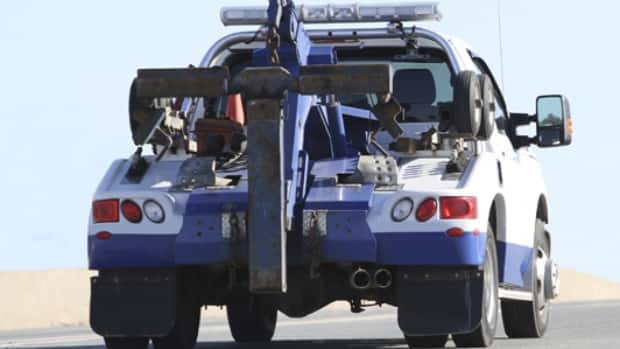City moves one step closer to flat rates, new rules for tow truck industry

A City of Ottawa committee has approved rules aimed at preventing drivers from being slapped with unpredictable towing bills, or having to track down vehicles towed to unknown storage facilities.
The new licensing regime laid out by city staff was approved unanimously by the community and protective services committee on Thursday and, if it's waved through by city council next week, would take effect on Jan. 1, 2022.
Under the new bylaw all towing companies — including those in Quebec — would need to apply to the City of Ottawa for a business licence in order to operate.
The same would apply to owners of storage facilities, who would have to keep regular hours from 8 a.m. to 6 p.m. and make sure their yards are enclosed and well-lit at night for security reasons.
The city has heard many stories where people are unable to retrieve their vehicles, and staff say the new rules are meant to prevent instances like when a woman faced a $2,900 storage bill after trying 26 times to reach the company.
No towing without written consent
Tow truck operators like Ali Awada say this move has been years in the making.
"Thank God you guys are actually putting something in place," said Awada, who owns Express Towing.
"There are good apples in any business. There are also bad apples."
Those bad actors have attracted a lot of attention over the years and made drivers feel preyed upon, councillors said.
"Many tow truck drivers are like sharks, circling vulnerable people who have been in collisions, who are disoriented, who could be injured," said River ward Coun. Riley Brockington.
"The industry is ripe for regulation. It really has gotten out of hand."
The Ontario government passed new towing legislation in June, but it could be some time before that becomes law so city staff want local rules that can deal with the issues sooner.
Avoiding add-on fees
The city will set several flat rates. A standard tow from a collision would cost $300, while a tow that does not involve a collision would be set at $175. Being winched from a ditch would cost $125, while storage would cost $60 per day.
Add-on fees for such things as cleaning and waiting time have been a big problem, city staff told councillors, and can cause a towing bill to soar.
All tow trucks already have to remain 100 metres from a scene unless someone requests their service. Under new rules, no vehicle can be hooked onto a tow truck until the customer, or a police officer or official on the scene, agrees in writing.
The authorization form for a tow would include many details, including the truck driver's licence number and the destination of the vehicle.
Staff estimate there are between 200 and 250 tow truck drivers in the city, and 40 towing companies.
Committee also approved a motion by Coun. Jeff Leiper aimed at asking staff to look into the locations where trucks wait for their calls to tow vehicles. Leiper wants to find out whether some gaps in parking and traffic rules need to be closed so tow trucks don't idle near schools and parks.

